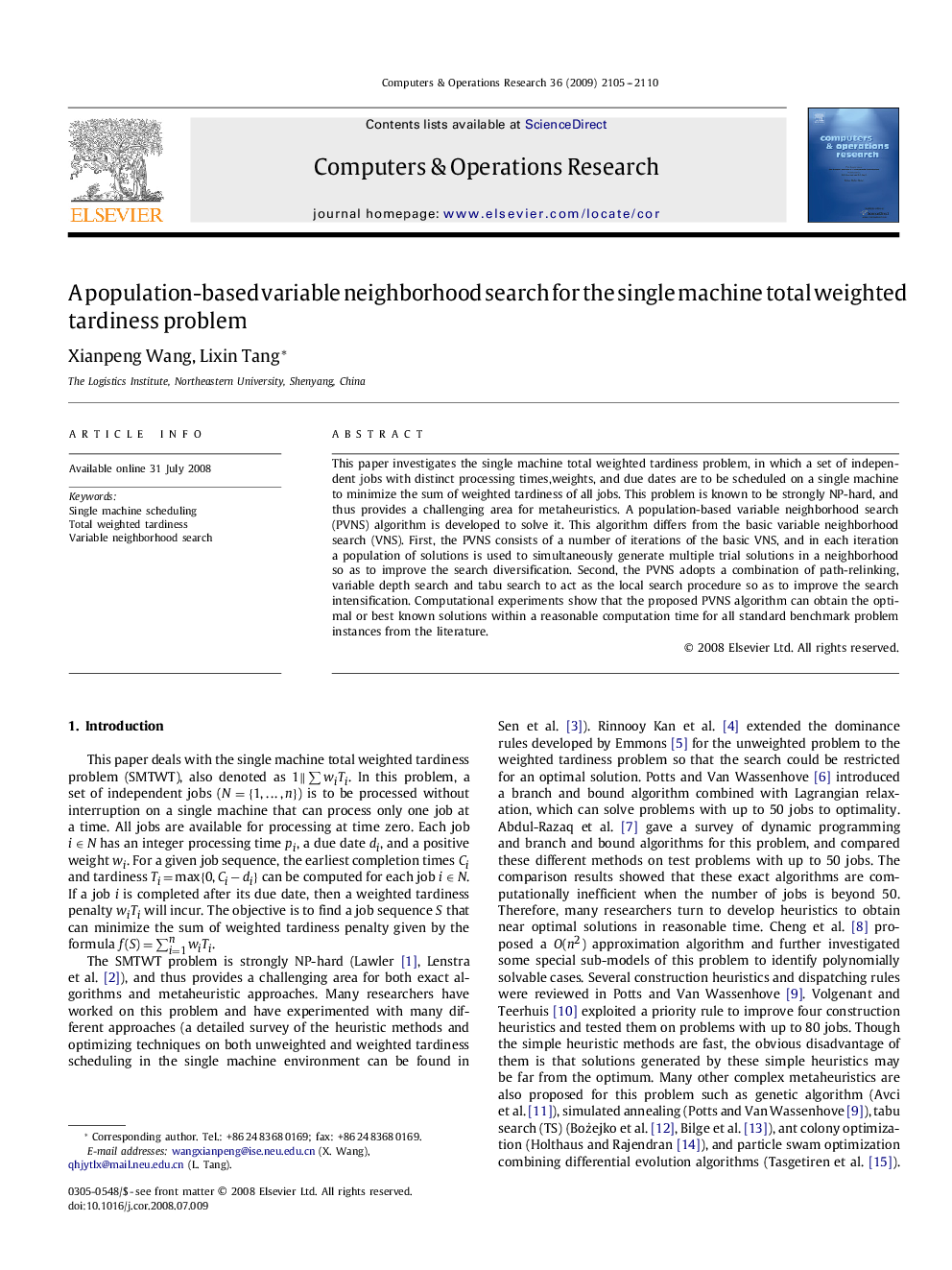| Article ID | Journal | Published Year | Pages | File Type |
|---|---|---|---|---|
| 475909 | Computers & Operations Research | 2009 | 6 Pages |
This paper investigates the single machine total weighted tardiness problem, in which a set of independent jobs with distinct processing times, weights, and due dates are to be scheduled on a single machine to minimize the sum of weighted tardiness of all jobs. This problem is known to be strongly NP-hard, and thus provides a challenging area for metaheuristics. A population-based variable neighborhood search (PVNS) algorithm is developed to solve it. This algorithm differs from the basic variable neighborhood search (VNS). First, the PVNS consists of a number of iterations of the basic VNS, and in each iteration a population of solutions is used to simultaneously generate multiple trial solutions in a neighborhood so as to improve the search diversification. Second, the PVNS adopts a combination of path-relinking, variable depth search and tabu search to act as the local search procedure so as to improve the search intensification. Computational experiments show that the proposed PVNS algorithm can obtain the optimal or best known solutions within a reasonable computation time for all standard benchmark problem instances from the literature.
